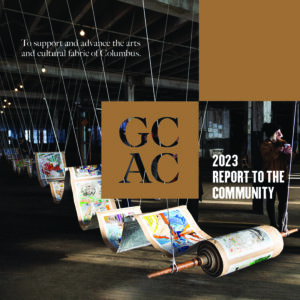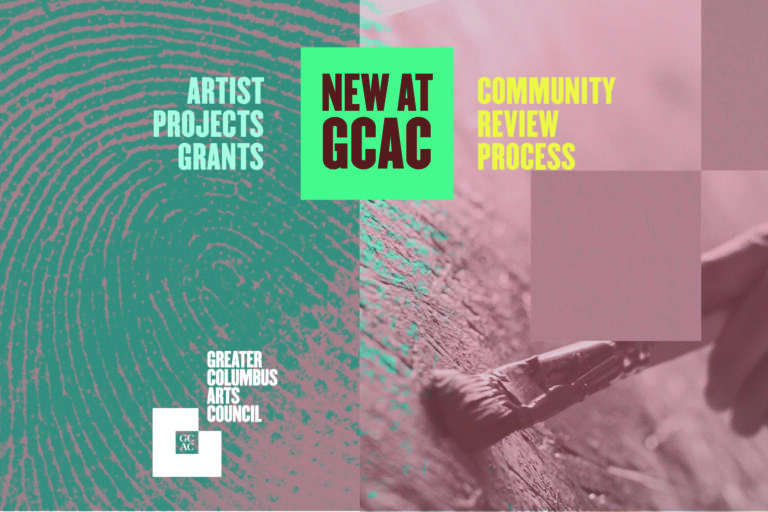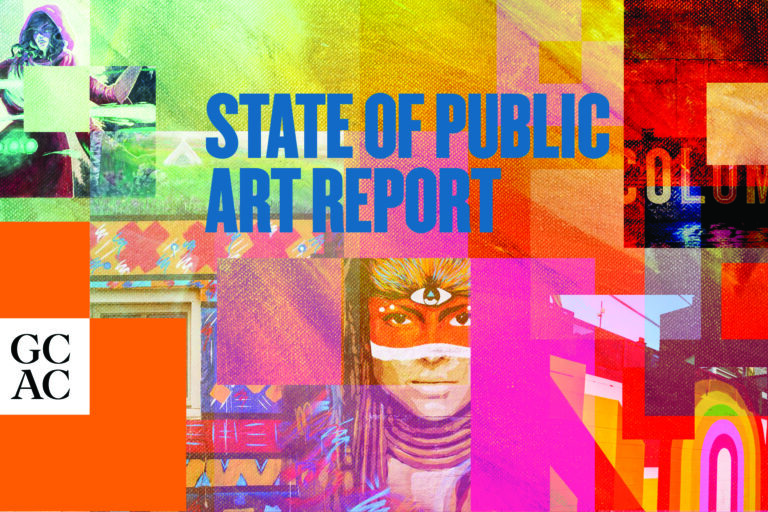In an historic moment for the arts in central Ohio, Columbus City Council, led by Council President Shannon Hardin, approved two ordinances on December 10, 2018 that provide new public dollars to invest in the arts. This is the culmination of 15 years of research indicating Columbus was drastically underfunded publicly in the arts.
This investment will keep the arts strong in Columbus, protecting and building on hundreds of millions in economic activity each year. This investment is making Columbus more competitive with cities like Cleveland, Pittsburgh and Nashville, who we compete with for business, tourism and residents. And this investment means more arts education opportunities for children, more free festivals in our neighborhoods and more support for artists in all disciplines.
The Columbus Ticket Fee was implemented on July 1, 2019 and now provides significant funding to invest in the arts and public cultural facilities.
The funds generated by the 5% ticket fee is invested in two major funds – The Creation, Innovation & Inclusion Fund and the Facility Stabilization Fund – and is implemented through grants managed by the Greater Columbus Arts Council.
Creation, Innovation & Inclusion Fund Ordinance 3378-2018
The Creation, Innovation & Inclusion Fund is a 5% ticket fee on all arts, culture, entertainment and sports events in Columbus in venues with more than 400 seats and on tickets more than $10. The 5% fee is projected to generate $6 million annually to support the arts, artists and arts education. However, the 5% ticket fee applied to events held at Nationwide Arena will be directed to a second fund called the Stability Fund.
Facility Stabilization Fund Ordinance 3379-2018
The Facility Stabilization Fund is a 5% ticket fee on all events, including Blue Jacket matches, held at Nationwide Arena. From this ticket fee revenue generated at the Arena, 80% will be used for capital improvements for the publicly-owned arena as outlined in a schedule provided to city council, and 20% will be contributed for the upkeep of aging cultural buildings in Columbus. Council’s plan ensures that only funds generated by Nationwide Arena are used for capital improvements there, but that Nationwide Arena still provides support for other arts, cultural and entertainment facility needs in Columbus.
Talking points—why the ticket fee is important
Columbus and Franklin County have rapidly gained stature as Ohio’s most successful community, the heart of a premier Midwestern and national region. The presence of non-profit arts and culture and professional sports and entertainment attractions here is a major reason. These dynamic sectors of our economy and community are responsible for thousands of jobs, billions in economic benefits, endless opportunities for children and youth, and critical energy for our quality of life.
But these two sectors, vibrant as they are, need additional public investment to prevent the erosion of quality offerings and facilities. Multiple studies have indicated the need for more public funding in the arts, including the Funding Review and Advisory Council (FRAC) convened by Mayor Coleman in 2012. During the past five years we have engaged in a continuous process of study and planning, alongside work and engagement with others in the community in pursuit of a fair and viable solution to successfully address the problem and prepare us for the next 25 years of growth in Columbus.
The Columbus Ticket fee:
- Provides for a 5% ticket fee on ticketed arts, cultural, entertainment, and professional sporting events to provide public funding for the arts and for cultural facilities upkeep in Columbus. (College and K-12 athletic events are exempt.) GCAC initially proposed a 7% fee.
- Ensures that Nationwide Arena pays for its own needed improvements and contributes as a community partner to support the arts. City Council made it crystal clear the arena must generate its own funds for its capital improvements and contribute 20% of those generated funds to support capital improvements at other public cultural facilities.
- Increase saccess to art and art education for all children and families regardless of their zip code.
- Increases the number of artists and arts organizations funded each year.
- Keeps GCAC’s recommended exemption for venues with 400 or less seats.
- Retains GCAC’s suggested exemption of $10 tickets and under.
- Exempts movie tickets $10 and under.
- Exempts all 501(c ) organizations, except those arts organizations receiving Operating Support from GCAC.
- Exempts K-12 sports and OSU sports. However, Council President Hardin received a commitment from OSU to provide $1 million annually to support arts in Columbus.
Additional Resources:
- Link to City of Columbus Auditor’s FAQs, Forms and Resources
- Frequently Asked Questions About Applying the Ticket Fee
- Guidance on how to talk about the Ticket Fee in digital and print communications







